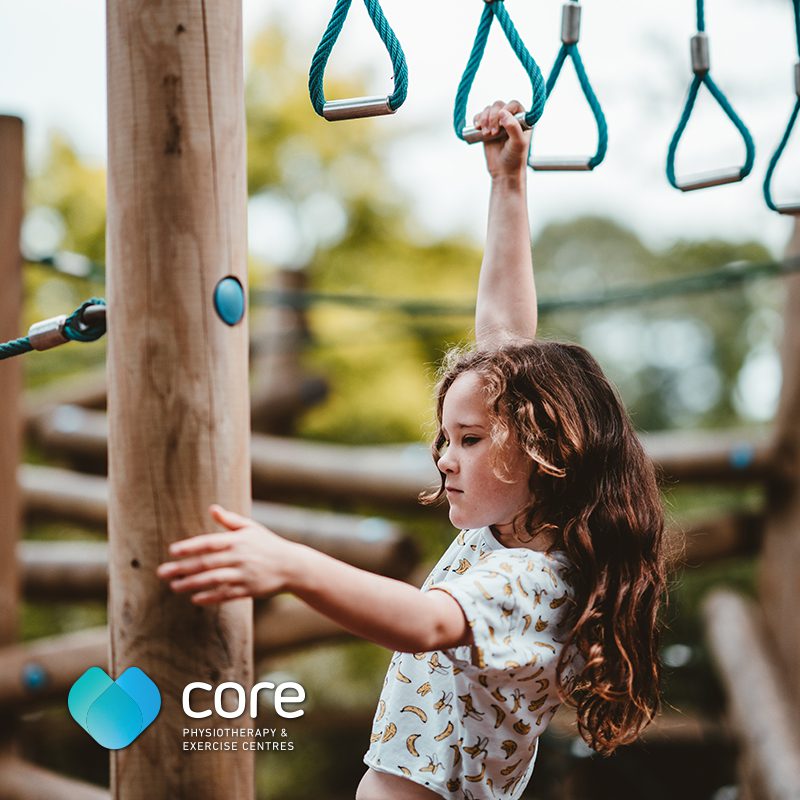As parents, one of our most important responsibilities is to ensure that our children are healthy and happy. What many may not know is that there are things we can do to help them lead an active life as they grow up. One way is through physiotherapy!
What is Infant and Paediatric Physiotherapy?
Physiotherapy helps improve movement, strength and functional or goal-orientated skills. For children, this means supporting their developing bodies. Physiotherapists work on gross motor skills such as crawling, sitting and standing, and then the more complex skills such as walking, running, jumping and hopping as they get older.
Paediatric physiotherapists are trained to work with children of all ages, including babies. They can complete specialised training specifically targeted to address concerns in the paediatric population. Paediatric physiotherapists use a collaborative family centred approach to work with the child and their family to help improve their daily functioning. This is specifically important when planning and developing interventions for children with congenital/ neurological or medical conditions.
What does Paediatric Physiotherapy entail?
Just like treatment for adults, paediatric physiotherapy is individualized and tailored to the needs of the child and their family. Treatment may include manual physiotherapy, a home-based exercise program, aquatic therapy, supportive taping/ bracing, education or prescription of physical tools like orthotics or splints.
Paediatric physiotherapy allows both the child and their family to be involved in the treatment activities and exercises. A paediatric physiotherapist uses play to ensure the child is engaged in the activity. This also helps promote motivation and adherence to the treatment program as the child will want to participate.
Benefits of Paediatric Physiotherapy
A physiotherapist can help your child understand their body and how it changes as they grow. Some of the benefits to paediatric physiotherapy are:
- Development of gross motor skills à which play a part in social and behavioural growth
- Increase in self-esteem and independence
- Prevention of injuries by strengthening muscles and improving balance
- Improved joint mobility, range of motion and posture
- Improved sleep and ability to focus by reducing neck and back discomfort
- Knowledge about the muscles, bones and ligaments in their bodies so that the child can protect their body as they get older
How do I know if my child needs physiotherapy?
Many signs may alert you to the need for paediatric physiotherapy – if you’re not sure, it’s always best to get in touch with a professional for advice. Some examples are:
- The child isn’t meeting developmental milestones in the expected time
- Struggling to complete gross motor activities with the same competency as other kids their age. This may include clumsiness or falling often
- Pain when completing gross motor activities
- Awkward or abnormal ways of moving – walking on their toes, W Sitting, turning their head one way or using one side of their body.
Many children suffer from medical disorders in their early years that limit their range of movement and affect their motor skills, and paediatric physiotherapy is an effective treatment. Some conditions may include:
- Autism Spectrum Disorder
- Muscular dystrophy
- Cerebral Palsy
- Down syndrome
- Juvenile rheumatoid arthritis
- Spina bifida
- Traumatic brain injury
- Arthrogryposis
- Cystic fibrosis
- Cardio-pulmonary disorders
- Orthopaedic conditions such as back pain, scoliosis, fracture, sports injury or surgery
When it comes to our children, we all want the best. If you have any concerns about your child consider giving physiotherapy a chance. To find out more about paediatric physiotherapy, contact us to book an appointment today! We’re always happy to answer any questions you might have.
Book in with one of our paediatric, exercise, physio, or pain specialists via 1300 012 273 or head to our website and book a session at your nearest clinic.

